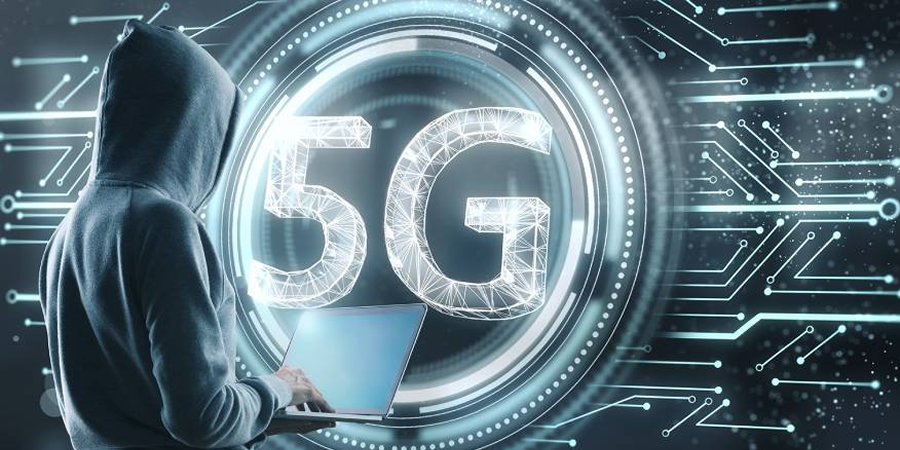The start of 2020 has seen an unprecedented spotlight shown on cybersecurity and data privacy. This has been embodied most recently by the rollout of 5G telecom networks around the world and the use of Huawei technologies to support those networks.
Even since last year, the current US administration has been placing exceptional political pressure on various nations to exclude Huawei from lucrative 5G business deals. But has the campaign been successful, and what has it really told us about the nature of cybersecurity today?
As of now, the US administration’s strategy of adding more pressure on Huawei globally seems to have yielded few results. US officials haven’t provided details about Huawei’s alleged backdoor access except to say that they have been aware of it since 2009 in early 4G cellular equipment.
Some companies have gone so far weigh in on the allegations directly. Last September, Microsoft’s president and chief legal officer Brad Smith was quoted as saying that the way the US government is treating Huawei is un-American, and that such actions shouldn’t be taken without a “sound basis in fact, logic, and the rule of law”. Microsoft has actually asked US regulators to explain themselves. “Oftentimes, what we get in response, ‘Well, if you knew what we knew, you would agree with us,’” Smith said in a recent interview. “And our answer is, ‘Great, show us what you know so we can decide for ourselves’.”
For its part, Huawei has rebuked by saying that the latest indictment by the US Justice Department is an attempt to irrevocably damage Huawei’s reputation and its business for reasons “related to competition rather than law enforcement”. The company says that the charges are “unfounded and inaccurate allegations”, and that some are based largely on recycled civil disputes from the last 20 years that have been previously settled, litigated and in some cases, rejected.
Meanwhile, nations are making up their minds about how to move forward.
Despite US pressure, Huawei has been approved to continue supplying 5G technologies in markets such as the UK and the European Union, with countries like Germany and France also accepting Huawei 5G. A spokesman for London-based Vodafone Group PLC, one of the world’s largest telecom providers by subscribers, previously said there was no indication that any of its equipment vendors had unauthorized access to its global networks. Deutsche Telekom AG, Germany’s largest carrier, said it wasn’t worried about its own network in Germany.
Wolfe also notes that the US has a long track record of modifying products to achieve its own goals. For example, he cites how the NSA intercepted Cisco routers and covertly installed spyware on them before they were shipped to customers. The agency’s Bullrun program, according to Wolfe, had placed back doors into commercially available cryptographic software and hardware, or weakened the encryption so that the NSA could break the code.
In light of this, Huawei even went so far as to say that the US allegations of Huawei using lawful interception are “nothing but a smokescreen – they don't adhere to any form of accepted logic in the cybersecurity domain”.
What everyone does agree on is that 5G is now of age, and it is going to pave the way for socio-economic development in the decade to come. So where has all of this left Huawei, especially in the Middle East?
Huawei’s top executive in the region says that the Middle East remains a strategic geography for the company in which it works closely with governments and the private sector to advance security, collaboration, and innovation for the digital era. Charles Yang, president of Huawei Middle East, notes that they have been leading 5G expansion in the Middle East as part of the first wave of deployments worldwide, and will now focus on vertical industry, ecosystem, and 5G talent development in 2020.
Is there still some trepidation ahead? Perhaps. In face of the US administration lobbying attempts to ban Huawei, the latter said that it is ready to sign no-spy, no-backdoor agreements with any and all entities in the Middle East region. “We have been working for 20 years in the region closely with our customers and forged strong ties of mutual trust,” contends Yang. “We chose to offer to sign backdoor agreements to showcase our determination to customers and other stakeholders in the Middle East region. We want to use this to help our customers to make their case stronger to use Huawei.”
To that end, the company has doubled down on its efforts to be seen as an international leader in developing and adopting mechanisms to improve cybersecurity to protect the reliability of its equipment and the privacy of consumers. Huawei has actually remained open to engaging with the US government to verify productive solutions to safeguard US telecommunications systems. Its executives have repeatedly said that Huawei “has never and will never” covertly access telecom networks, nor do they have the capability to do so.
The company is also supporting mainstream international standards as an active member of more than 400 standards organizations, industry alliances, and open source communities—including organizations like the 3GPP, IIC, OpenStack, and many more.
While the discussion on 5G security is far from over, Huawei asserts that cybersecurity is in fact an issue for all countries, governments, and companies. “We need measures in place applying to telecom operators and equipment suppliers so that there is an objective, verifiable basis for knowing which products and services are worthy of the public’s trust,” concludes Yang.
It would certainly be in everyone’s benefit for that understanding to be agreed, and soon.










